Germany’s Phytobiotics Futterzusatzstoffe GmbH has upgraded its facilities in China and Brazil while at the same time raising production capacity in Germany.

Dr Hermann Roth, founder and CEO, said Phytobiotics spent around US$4 million to upgrade its extraction plant in China.
In Germany, it is expanding organic mineral and Sangrovit production capacity. Facility and warehouse upgrades in strategic markets both locally and offshore are estimated to cost more than US$10 million in 2019. More staff for its technical and sales teams are being added to penetrate further into strategic markets.
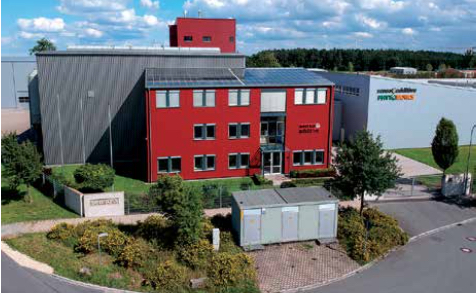
The new Plexomin production line is now installed at the newly expanded manufacturing facility of sister company Senso Additive GmbH in Neuendettelsau, Bavaria. The new production line features two machines to control the reaction of glycine and the mineral raw materials.
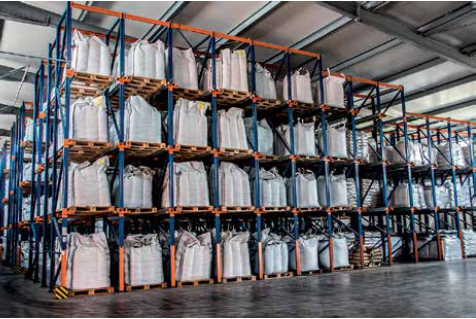
The Plexomin products use patented bis-glycinates and lysinates technologies which means they can withstand high temperatures during pelleting and remain intact in the highly acidic environment of the digestive tract.
The bis-glycinate and lysinate trace minerals are non-reactive and highly bio-available. They outperform the predecessor mono-glycinate organic trace minerals, he said.
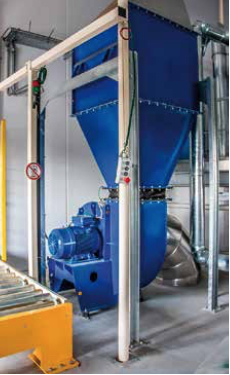
Bis-glycinate chelation technology is used for Cu and Zu, and lysinate for Mn and Fe. The final products are granulated, free flowing and dust free.
Its organic selenium products contain high levels of selenomethionine and selenocysteine.
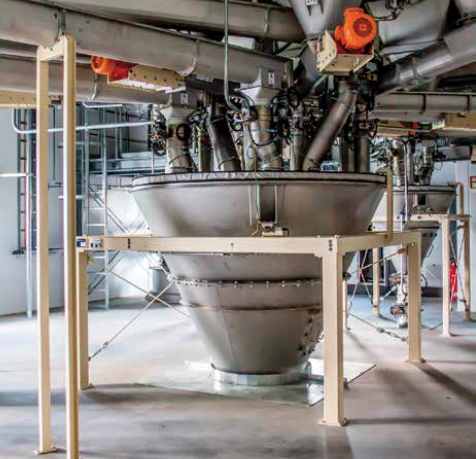
Phytobiotics guarantees product quality due to watertight in-process controls and accredited labs that test raw materials through to finished products. The products live up to the strict limits of European feedstuff legislation, ensuring safe products from feed to fork.
Plexomin is also applicable in crops. Phytobiotics will debut its crop-related business in Asia in 2019 before launching a global business in 2021. Based on field trials, Plexomin organic minerals can improve growth and yields of canola, soybeans and corn through foliar spraying to solve micronutrient deficiencies.
Glycine is a limiting amino acid in plants and plays an important role in chlorophyll formation in the leaves. Foliar application of Plexomin on canola can improve yields by up to 40%, especially under dry conditions when the plant cannot absorb minerals from the soil.
Senso Additive
Biogas products are generating a fair turnover for the company. Senso Additive – a subsidiary of Phytobiotics, has captured 25% of the market share for biogas treatments in Germany.
“It is a fast growing business and we now have businesses in Denmark, The Netherlands and France. Its next move is to blast a trail in Asia,” he said.

Senso Additive is mineral additive product used in bioreactors to increase methane yield and reactor performance when using high fiber and nitrogen feed- stock such as chicken manure.
Senso Additive contains cobalt and nickel which are limiting factors for methanogenic bacteria. The company can evaluate different fermenting conditions to appraise stability and methane output.
Miracol – a game changing flavor
Flavors and sweeteners line Miracol hit the market in June 2018. Miracol offers tailor-made flavors and sweetener combinations that are exclusively designed upon customer request. Its flagship flavors and sweeteners are PiggySweet, PhytoSweet and Appitello.
It plans to launch “forest mushroom,” a unique flavor containing a meaty taste for piglets. The flavor mimics what piglets eat in the forest.
“In the wild after weaning, the piglets eat forage and sometimes carrion. So, we try to find out what the hogs eat in nature and copy it,” he said.
Proprietary trials found that the forest mushroom flavor is highly palatable and increases feed intake even without an added sweetener. It is applicable in creep feed, pre-starter and starter feed.
“We found it works best without sweeteners. In nature, piglets do not get sweet flavors. We should give them what they want to eat, not what we want,” he added
Dr Roth believes that colostrum powder is a promising tool to bolster animal health and put a lid on the pervasive use of antimicrobials in piglets.
Phytobiotics is preparing to roll out a high quality colostrum powder product using the newest technologies to preserve its functional contents.
Sangrovit line – a continuing innovation
Sangrovit, a phytogenic feed additive derived from an extract of the Papaveraceae plant Macleaya cordata, will retain its flagship status.
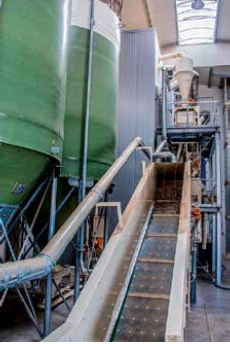
Sangrovit products contain quaternary benzophenantridine and protopine alkaloids which have anti-inflammatory and antimicrobial properties.
Sangrovit WS, a water-soluble variant, is used to combat digestive tract infections and inflammation in poultry and swine, especially necrotic enteritis and salmonellosis.
Apart from daily rations, Sangrovit WS can be applied in a higher dosage when the animals are infected. A new packing size and new formulations are on the way.
Sangromix ML, which is Sangrovit blended with monolauric acid, was developed to deal with infections of gram positive bacteria such as Staphylococcus and Clostridium perfringens in piglets.
Phytobiotics sees potential for Sangrovit to be used more widely in various species and production phases, as well as a broader spectrum solution for meeting the day-to-day challenges of animal production. Research on turkey production, heat stress in swine and the early development of calves is in the works.

The existing facility has annual capacity of 3,000 tons/three shifts/day. With the new facility coming online, the company will boost its annual capacity for Sangrovit to 9,000 tonnes/year. It is looking into capacity expansion again in 2022.
Research activities
The Animal Production Inflammation Centre (APIC) is a collaborative research effort designed to investigate the root causes of inflammation in food animal production and develop strategies to minimize adverse effects.
APIC is driven by interdisciplinary cooperative research undertaken by globally recognized research centers. It focuses on tackling existing problems and generating new knowledge and technologies.

Phytobiotics will continue its own R&D activities aimed at discovering new cost-savings technologies that are beneficial to users. It offers grants to students and contracts research on new and existing products to explore new applications, validate their effectiveness and mode of action. Phytobiotics places a high priority on research into inflammation and gut, liver and kidney health. The company so far has more than 50 worldwide patents, said Dr Roth.
It is partnering with businesses in the US, Brazil and Thailand, and has opened offices in various parts of the world. The company is set to deploy technical staff in Thailand to serve customers in Southeast Asia. So far, it has more than 60 international partners in Europe, Africa, the Middle East, Asia, South America and North America.
It joined forces with Guangdong-based VTR Bio-Tech Co Ltd in 2018 to form Victory Enzymes GmbH, located in Neuendettelsau, Germany. Phytobiotics holds a 49% share.
Victory Enzymes GmbH is active in the development, production and distribution of animal feed enzymes across Europe.
Dr Roth is a firm believer in organic growth and will continue to develop the business from the inside.
“I have never seen a leaping synergy from acquisition. Often, acquisition leads to selling off good business units and losing competent staff in a bid to comply with antitrust laws. In such cases, one plus one is always less than two,” he noted.
Phytobiotics has maintained steady growth of 20% per annum over the past 20 years due to innovation.
